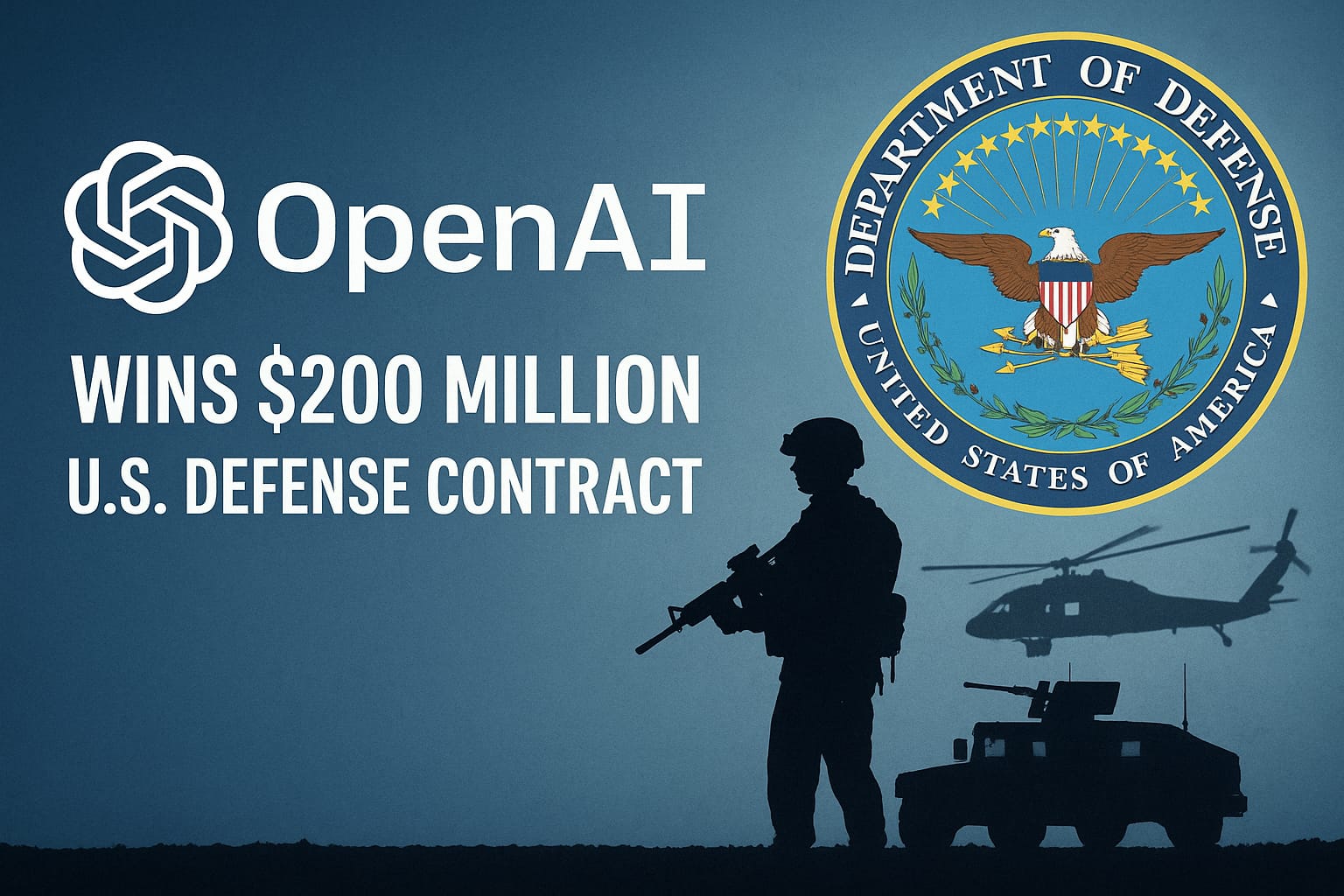This week (June 16, 2025), the U.S. Department of Defense signed a $200 million contract with OpenAI for the development of advanced artificial intelligence tools to meet national security challenges. The first milestone marks a significant step in bridging the gap between leading-edge AI and military performance.
What the Deal includes
- Prototype frontier AI capabilities: both to support warfighting and to support enterprise applications, for example, logistics, decision support, and battlefield situational awareness
- Tentative schedule: One-year development strategy, mainly concentrated in the route of Washington, D.C., and the goal is to complete it by July 2026
- Strategic positioning: This is the first official opening of the gate of DoD contracts as OpenAI outsources its first contract among the competition of 12 proposals
Why does it matter?
1. Defense Evolution of OpenAI
In the past, OpenAI had taken a stance that military use was not permitted. The update in January 2025 removed prohibitions on defense-related applications, however, and the shift is solidified in this contract
2. Cracking into Government Labs
The agreement hastens the opening of the new subsidiary in government, OpenAI in Government, consolidating OpenAI government activity, including military and government applications, government-service applications, such as healthcare for service members, and internet security.
3. A Money-Spinner
By June 2025, OpenAI earned its annualized income at an amount of $10 billion
- As it does, it is also undertaking a $40 billion investment (led by SoftBank), presumably at a valuation of $300 billion
- A massive Pentagon contract is a tough sign that OpenAI is shifting towards greater and more strategic industries.
4. AI investments in National Security
- And as a companion to the White House’s drive to develop an American AI market with lots of competitive activity, the defense systems are excused from those regulations
- Indicative of a larger development: Anthropic and Palantir, Meta and open-source projects’ defense is quickly taking a place as a major frontier of AI
Strategic Implications
- In the case of OpenAI, this will place the company on par with some of the highest-tier national-security partnerships, entering a field that was traditionally dominated by firms such as Palantir.
- To the competition: It has gotten more competitive as Anthropic, Google, Meta, and niche startups learn how to bid more intensively, creating a new rivalry to fight outside of consumer AI.
- To the general population & policy-makers: Reveals some important ethical questions around the topic of militarized AI, the measure of security versus undesired misuse.
FAQs
Q1: Does this deal mean that OpenAI is making weapons?
A1: No- OpenAI has a prohibition on offensive weapons. Weapons should be used for defense and administration.
Q2: Why is OpenAI dislodging its military ban?
A2: To have a career in cybersecurity, defense-tech collaborations, and government service AI work (such as veteran suicide prevention) without crossing ethical boundaries.
Q3: What is the size of a defense contract sized at 200 M?
A3: It can be considered one of the largest software contracts that DoD has been issuing recently. In terms of the companies that can be compared to it, it is close to Palantir, which generated ~$210M in DoD revenue in AI.
Q4: Could open, AI combine with current defense contractors?
A4: Possibly. They talk about cooperation with Palantir and Anduril, even though they are competitors.
Final Thoughts
This is a breakthrough contract: OpenAI goes beyond the mass consumer AI to vital defense projects. We are just starting in the history of the use of AI in service of the conflicting goals of a new frontier of national security, a movement that follows in the footsteps and has enormous possible commercial ramifications, but needs direction, accountability, and planning.






